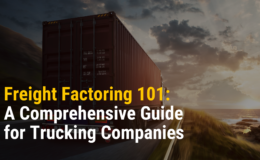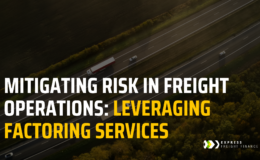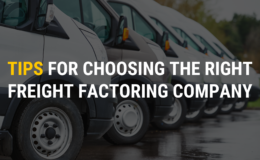Trucking costs have increased dramatically over the past two years for bother fleets and owner operators. What used to be regular overhead expenses have risen, and are eating into revenue, preventing many in the trucking industry from growing or even maintaining regular operations. Analysts point to two factors – technology and insurance – as the main causes for increases trucking costs in today’s economy.
Technology Increases Trucking Costs
To be compliant with federal regulations, truck drivers need to have electronic logging devices installed. The cost for a single owner operator can make a huge dent in finances, and fitting entire fleets with ELDs can place a big strain on cash flow. The other big technological cost comes in the form of training. The technology used to train drivers, including simulators at some of the larger companies, are making trucking costs skyrocket. Add to all of this the technology which has become standard, such as GPS, company smartphones, on-board computers, and more, and outfitting trucks with the right gadgets can get fairly expensive. And the pace of technology never stops. Tech becomes outdated and needs to be upgraded regularly, or serviced by third-party technicians. On the horizon, the trucking industry as a whole will probably start using LIDAR, a laser-based radar, which helps to prevent collisions by monitoring objects and vehicles on all sides of the truck. Fortunately, that bit of technology has been dropping in price to become more accessible to the trucking industry.
Insurance Premiums Are Rising
Technology isn’t the only thing that drives up trucking costs. Over the past few years alone insurance premiums have doubled. Most drivers and fleet owners see a big gap in the logic behind these premiums. If the cost of technology is rising, it’s one thing. However, the mandated technology used by truckers is designed to make the entire industry safer for drivers and others on the road. So if the trucking industry is safer, then why have insurance premiums gone through the roof? If anything, insurance costs should be going down. As things stand, insurance premiums for the trucking industry represent the number one operational cost increase across the board.
Maintaining Capital Reserves
The increase in trucking costs has left the industry operating on a tighter budget than usual. Freeing up capital to get equipment, cover insurance costs, and hire new drivers to fill the workforce gap requires a healthy cash flow. Express Freight Finance is the industry leader in freight load factoring to ensure a strong cash flow so fleets and owner operators can cover expenses without becoming dependent on debt-based loans. Contact our offices today to learn more.






